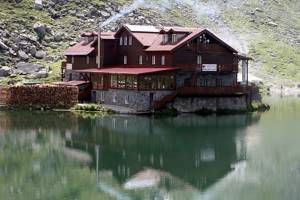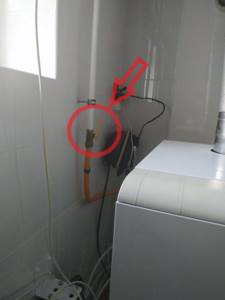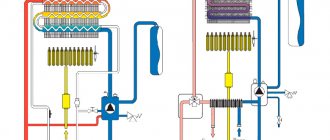What documents are needed to replace a gas boiler in a private house?
The first thing you need to do before installing a new gas appliance in a private residential building is to collect a package of documents.
It includes the following papers:
- a certificate indicating that the new equipment complies with the rules of safe use;
- ventilation/smoke duct inspection report;
- gas equipment service agreement with a warranty period of 1 year;
- project report (if required);
- technical passport for the installed boiler, as well as instructions for its correct use.
Preparation and dismantling of the old boiler unit
The work of dismantling boiler equipment can be done with your own hands in a few days; permits are not required for this, but in order to avoid injuries and the creation of emergency situations, it is recommended to adhere to certain rules.
Algorithm for dismantling an old boiler:
- Preparing the heating system and disassembling the unit.
- Cleaning the pipe system and heating radiators to protect new equipment from clogging. Regular cleaning of the pipeline system should be performed annually before the new heating season, which will not only improve the quality of heat supply, but also extend the life of the equipment. To perform operations, using a make-up tap, fill the system completely with water, and then drain it from the discharge tap at the end of the system. Perform the procedure at least 3 times to completely remove suspended substances.
- After washing and completely draining the water, they begin to dismantle the old unit.
- Disconnect the boiler from all external utility networks: water, sewerage, electricity and gas, as well as from ventilation and flue gas exhaust systems. During the disassembly process, in some places it may be necessary to cut the pipes using a grinder. There is no need to worry about this, since the new unit will have to be equipped with new connection connections.
- They begin to remove the boiler from the wall or foundation, depending on the type of structure. The operation is carried out in compliance with safety precautions, ensuring stable support for the unit so that it does not fall off its hinges. The work is performed by at least 2 people.
- Used hinges are removed, since as a result of long use they are most likely damaged by corrosion and weakened.
- They check the condition of the base for the floor-standing boiler, and if necessary, repair or completely change it.
Penalties for replacement without approval
If the permit was not issued and the installation of new gas equipment was not approved, according to Russian law, the owner of a private house will have to pay a fine. This follows from Article No. 7.19 of the Code of Administrative Offences. The amounts that will have to be paid for violating this rule are also indicated there.
The fine ranges from 10,000 to 15,000 rubles. If an emergency occurs due to an incorrect and unauthorized change from one gas apparatus to another, criminal liability may also arise. At the same time, upgrading a gas boiler with your own hands is not allowed.
What to do in an emergency situation?
Are you still undecided whether you need to change your gas boiler and when is the best time to do it in order to meet it in the shortest possible time? But you have once again encountered a breakdown and are worried that you may be left in the cold winter without heating equipment?
To resolve the situation with replacing the boiler in winter as quickly as possible, you should contact Gorgaz. The specialists of which will deliver and install a boiler that matches the power of the old one and will draw up the necessary reports without delay. This approach will minimize negative consequences and avoid penalties.

It should be remembered that individual requirements of regional gas services may differ. Therefore, it never hurts to get the necessary advice from employees of the specified organizations
As for the total cost in such a development of events, it will turn out to be quite high - such a purchase of a boiler is not always profitable.
Therefore, if time is of the essence, it is better to choose a boiler with the same gas consumption per hour of operation with an old unit. And after installation, notify Gorgaz about this, as indicated in paragraph “Features of replacing a boiler of the same power.”
Cost of specialist work
Before replacing the boiler, you need to prepare a package of documents and set aside a certain amount of money to pay specialists for gasification of houses.

For the capital of Russia and the Moscow Region, the costs will be about 8,000 - 22,000 rubles, for St. Petersburg - 6 - 15 thousand rubles, for the regions - 4,500 - 12,000 rubles. The indicated amounts are given taking into account the removal of the old device, installation of a new one and various adjustment work.
How to replace a gas boiler in a private house, we’ll figure it out step by step
Let’s put together all the recommendations and rules for the competent, legal reinstallation of gas equipment in a private residential building with a new one. The 2021 rules suggest the following algorithm.
Stage 1: application for approval of technical specifications
To legalize the replacement of boiler equipment, you need to pay a visit to Gorgaz or Raygaz (depending on your place of residence) to submit the appropriate application for the provision of technical conditions (TU). If refurbishment is needed, a design will also need to be made, and for this you need to take out planning permission.
In addition to personal information, as well as data about the boiler and its future location, you will need to indicate in the application the planned volumes of gas consumed. The approximate number of cubic meters can be found in the device passport. If you encounter any difficulties with the calculation, you can seek help from specialists working in the city gas department. To do this, you must first submit a separate application.
After processing the submitted application and performing the necessary calculations, after some time (the date will be announced upon acceptance of the application), the technical specifications will be ready and the owner, upon presentation of a passport to confirm his identity, will receive it. It is believed that the processing time for an application cannot exceed ten working days (two calendar weeks).
By the way! If you do not know which gas authority you need to apply to, pay a visit to the local government organization in your area - they should forward the application to the correct organization within five days.
Stage 2: obtaining agreed specifications
The document issued after submitting the application is called “Technical Conditions”. This is a set of rules that must be adhered to. The data in the technical specifications is indicated in accordance with the current PP No. 1314 (connection rules) dated December 30, 2013 (as amended on March 19, 2020).

After reviewing the received technical conditions, the owner will see that they include requirements for ventilation and smoke systems, as well as instructions for the placement of the unit and device for recording the amount of gas consumed.
Stage 3: drawing up project documentation
New design documentation is not needed (issued at will) if the gas device will not be moved, but will only be replaced with one of similar power. This is stated in the Russian federal law on heat supply, issued under No. 190 of December 29, 2004. The following cases are an exception: more than one family lives in a house; housing intended for private use has more than three floors.

If for some reason you still decide to draw up and sign the project documentation, you will need to provide Gorgaz with a schematic schedule for the installation of gas appliances, which includes chimneys, boilers and other parts of the gas supply system of a private home and gas disposal. You will also need a visual diagram of the laying of the gas pipeline from the main to the building and a communications diagram.
The rules for replacing a gas boiler in a private house require that the above-mentioned papers also be accompanied by a certificate of conformity (if it was purchased from a third party), a grounding loop inspection report, instructions and a passport for the equipment. Gorgaz will also require you to show a service agreement concluded for a period of at least one year.
Stage 4: approval of design documentation
After drawing up the project, it needs to be formalized. Approval is carried out in the same organization - in Gorgaz. After submitting documents and until approval, it can take from seven days to four months (depending on the volume of work of specialized specialists at the city gas enterprise).
If all requirements are met, the gas documentation is approved and the project is successfully approved. To this end, the applicant (owner or owner of the house) is issued a duly certified document, which is an official permit to begin work on replacing the gas unit.
In case of refusal, it will be necessary to bring documents that do not comply with current rules into proper form and correct any errors that were made in them. The organization will issue the applicant with a corresponding written document about what errors occurred.
Stage 5: removing the gas apparatus
Dismantling should only be carried out with special knowledge and skills. This means that you will need to invite a professional to perform such work. He will first disconnect the old device from the gas, water supply and heating system. In addition, water is drained from the unit and all heating pipes.
Stage 6: installation of a new boiler
The installation of a new boiler is carried out by a licensed specialist who understands the issues of gas supply to residential buildings and has permission to perform such manipulations. There is no clear indication that you cannot replace the device yourself (a specialist must only make a direct connection to the gas), so this question remains open.

On the other hand, if the boiler installation/replacement algorithms are violated, the gas service may stop supplying gas for the private needs of the residents of the house. Based on the above, it is best to use the services of experienced specialists.
Stage 7: Test
As already indicated in the description of the sixth stage, the boiler must be connected by a professional. Naturally, the performance test is also carried out by a professional. A full inspection of the installed boiler is first carried out. The equipment is also started for the first time, after which it becomes clear to the specialist what defects or malfunctions are observed in the operation of the boiler.

Based on the test results, the invited employee fills out a report, which is later submitted to Gorgaz. If malfunctions are identified, the owner must eliminate them, after which the test procedure is repeated until a positive result is achieved.
Stage 8: notification to the city gas authority
Replacing an old gas boiler in a private house with a new one ends with contacting Gorgaz to report the replacement. Within five days after completion of the tests, a written application must be submitted to this authority. Don’t forget to attach an annual service agreement and inspection/activation certificates for ventilation.
Service life of a floor-standing boiler
Floor-standing gas units last 5-8 years longer than wall-mounted ones. So, according to actual data, a steel heat exchanger can last 11-12 years, and a cast iron one can last 12-18 years.

Floor-standing devices practically do not function at full load, which prolongs the service life. And if the owner of a double-circuit heating boiler carefully carries out all routine maintenance and preliminary water purification, then such a gas boiler unit will serve him for at least an additional ten years. Many people remember Soviet cast iron boilers with a service life of 50 years.
At temperatures below 55 C, the condensation process begins in them, with the formation of acid, which penetrates the boiler heating surfaces and “eats away” everything in its path, from the chimney system to the firebox.
Therefore, if the manufacturer specifies a lower temperature limit for the return coolant, it must be maintained. In addition, when the condensation process occurs, it is necessary to additionally install condensate traps at the bottom of the chimney, which will significantly increase the service life of the floor-standing gas boiler.
You asked, we answer
Despite the abundance of information in open sources, owners of private houses still have many questions about replacing a gas unit. Let's try to explain them.
Is it possible to change the boiler in a private house yourself?
According to the Decree of the State Construction Committee of the Russian Federation No. 170 dated September 27, 2003, there is no ban on removing and carrying out a similar replacement of an old boiler. It turns out that one of the first stages of replacing a boiler, that is, removing the old one, can be done independently.

As for the direct connection of the boiler to gas, this work is performed by a qualified gas service worker. If the unit is replaced with exactly the same one (same manufacturer, identical brand, same power and article number), no additional approval is required, that is, in this case it is possible to do the replacement yourself.
Summarize. The answer to the question whether it is possible to replace a gas boiler yourself is: “yes, if no changes are expected in the equipment model.”
When replacing a gas boiler, do you need to change the design?
A replacement project is required if it is planned to replace the boiler with something other than a similar one. Thus, a project needs to be created when replacing a gas boiler with another, having a different power, a different product, manufactured by a different manufacturer. The project also changes for relocated boilers, if the owner of the house decides to change its location, for example, move it to another room.
Do I need to register a reinstalled boiler?

It is advisable to go through the entire procedure for registering a gas boiler as provided for in the rules and legislative acts of the Russian Federation. If the owner of a private house finds himself in a controversial situation and the gas unit has already been replaced, do not neglect checking with a specialist and registering it. These procedures will finally legitimize the installed equipment and provide you with peace of mind, because you will know that the gas apparatus is safe for use.
What documents are needed to replace a floor-standing gas boiler with a wall-mounted one?
Replacing one type of boiler (floor-mounted) with a completely different type of design (wall-mounted) is mandatory and must be registered after completing all the steps described above. Therefore, a complete package of documents is required for this. Among them:
- statement from the owner and his passport;
- technical specifications;
- a certificate indicating that the wall-mounted device complies with operating standards;
- service contract for 1 year;
- replacement project;
- ventilation duct inspection report;
- boiler test report;
- technical data sheet for the device, operating instructions.
The following documents will be completed and required throughout the boiler replacement process: some in the initial stages, others when commissioning a new wall-mounted boiler.
When planning to replace a gas boiler, you should immediately contact the gas service first. This must be done to submit your application. You can also clarify any unclear questions with the specialists of this organization and consult on the nuances of performing this difficult procedure, which will require the involvement of specialists.
Installation of new boiler equipment
condensation equipment
Sometimes the phrase replace (change) the boiler hides a whole complex of works: moving gas pipes, supplying power cables and even arranging a drain for disposal of acid condensate.
Using a new boiler with old heating requires the installation of filter devices on the return pipe. It is desirable that they include flushing of the mesh without disconnecting from the system or a quick-change filter cartridge. The transfer of gravity heating to a closed mode requires the installation of an automatic air valve (AVV) and a membrane-type expansion tank.
The relevant organizations complete the procedure for replacing the boiler by submitting the facility to the gas supervision authorities. In addition, a mandatory stage is the implementation of commissioning activities. The system is filled with coolant, the functionality of the unit is tested, and the draft in the chimney is checked. The power of the equipment is adapted to the heated area.
It is better to entrust the replacement of gas equipment to professional teams. High-quality installation is the key to a long MTBF of a new unit.











